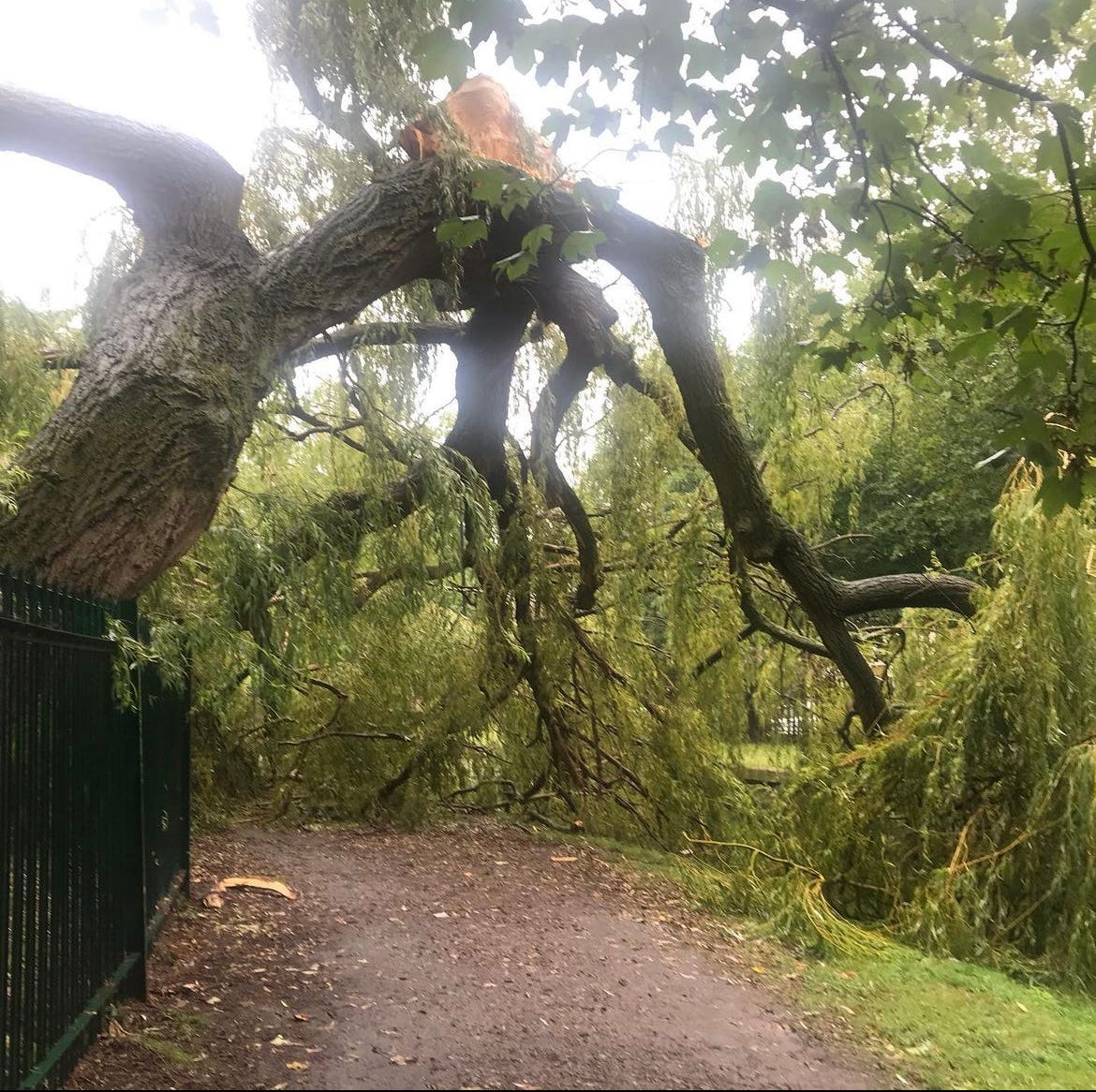In the space of a week the hedgerows in Somerset have suddenly ballooned, growing three (ten?) inches in height. You can’t escape the cow parsley; it mushrooms out in front of you, invading the space previously used by cyclists and slow walkers.
I use my phone to take photos of my green surroundings, sharing them with people on the internet. These snapshots of ‘nature’ always get plenty of likes, especially from my city-dwelling friends.
It’s gorgeous here right now, but I feel some discomfort in presenting these bucolic scenes. Beautiful as it is, this lush part of England is not the only place that the ‘natural world’ resides.
When I lived in Tottenham I would often visit the Woodberry Wetlands on my lunch break. Turning right down Seven Sister’s Road, and under a bridge that had the name ‘GEORGE FLOYD’ rattle-canned on it, I’d make my way slowly up an incline towards a busy crossroads. It’s a horrible junction if you’re not in a car. Best to take it easy and not risk anything by thinking you know better.
Set back from the crossroads, near some houses owned by the Hasidic community, are roughly twelve hectares of urban wetland, which encircle two large reservoirs. It is in this densely populated and ethnically multivarious community that kingfishers and reed warblers also find a home.
During the pandemic I would head out to the Wetlands religiously; slowly retracing the steps I had taken twenty hours earlier. On one of my excursions a large willow tree had almost snapped in two and was now blocking the path. I suppose a lightening storm the previous night had probably struck it, resulting in the tree splaying itself dramatically across my primary exit.
I stood there for a moment, not sure what to do. Some visitors turned back, but I watched as others bravely edged their way around the tree’s flailing branches—confident that they wouldn’t fall into the waterway that ran adjacent to the path. Eventually I concluded that I was short enough to duck under the tree, parting its green tendrils with both hands before emerging on the other side. My route now unblocked, I was able re-join the cars and Ubers of Seven Sisters road and begin my descent home.
I was reminded of the Wetlands existence after reading Katharine May’s newsletter ‘The Clearing’ this week. She writes that:
We are the wild. And the places we inhabit are wild too - not wild with unchecked vegetation, but wild with us. That makes our smartphones wild places, places into which we flow like the tides, sharing the unruly tangle of our lives, endlessly making and reinventing beauty.
Her essay is partly challenging our national tendency to think of nature as being that which only exists in the ‘countryside’, or in convenient fifty-minute chunks narrated by an unrelenting David Attenborough. Places like Woodberry Wetlands remind us that our towns and cities are wild places too. But Katharine goes further than that, arguing that on a much deeper level, we humans are part of nature. We are the wild.
Our feudal history is responsible for severing many of the creative relationships that have occurred naturally between our species and the environments we inhabit. I was reading only last week of the ways in which reed and sedge habitats, and the industries like reed cutting which depend on them - have been almost decimated thanks to pressure from developers. The depleted habitats which do exist are now often under ‘conservation’ management schemes, which tend to limit reed production.
Yesterday evening, as I walked to get a drink with friends, I passed a man honing his scything skills along the banks of The Dippy, a green corridor that connects Culverhill to the modern housing estate bordering the River Frome.
It’s a peculiar sight. Him, rhythmically swinging his scythe, cutting back a square parcel of the grass that is otherwise left unmown. Over his shoulder the properties of local council estate are just visible. I wonder if any of the children in these flats are looking on from their window, wondering, like me, what on earth he is up to.
We are the wild.
Thanks for reading.
Grace
P.S. If you enjoyed Golden Hour, maybe forward this email to a friend who would like it too.










Lush! We live in suburbia, near a local park and the coast, lots going on in nature around us... i'm enjoying watching a tree come late to the party as it comes into leaf. I'm pondering on all the lives that intertwine with mine, many of whom are living in challenging, difficult and yes WILD moments.
Thanks for sharing, Bill!